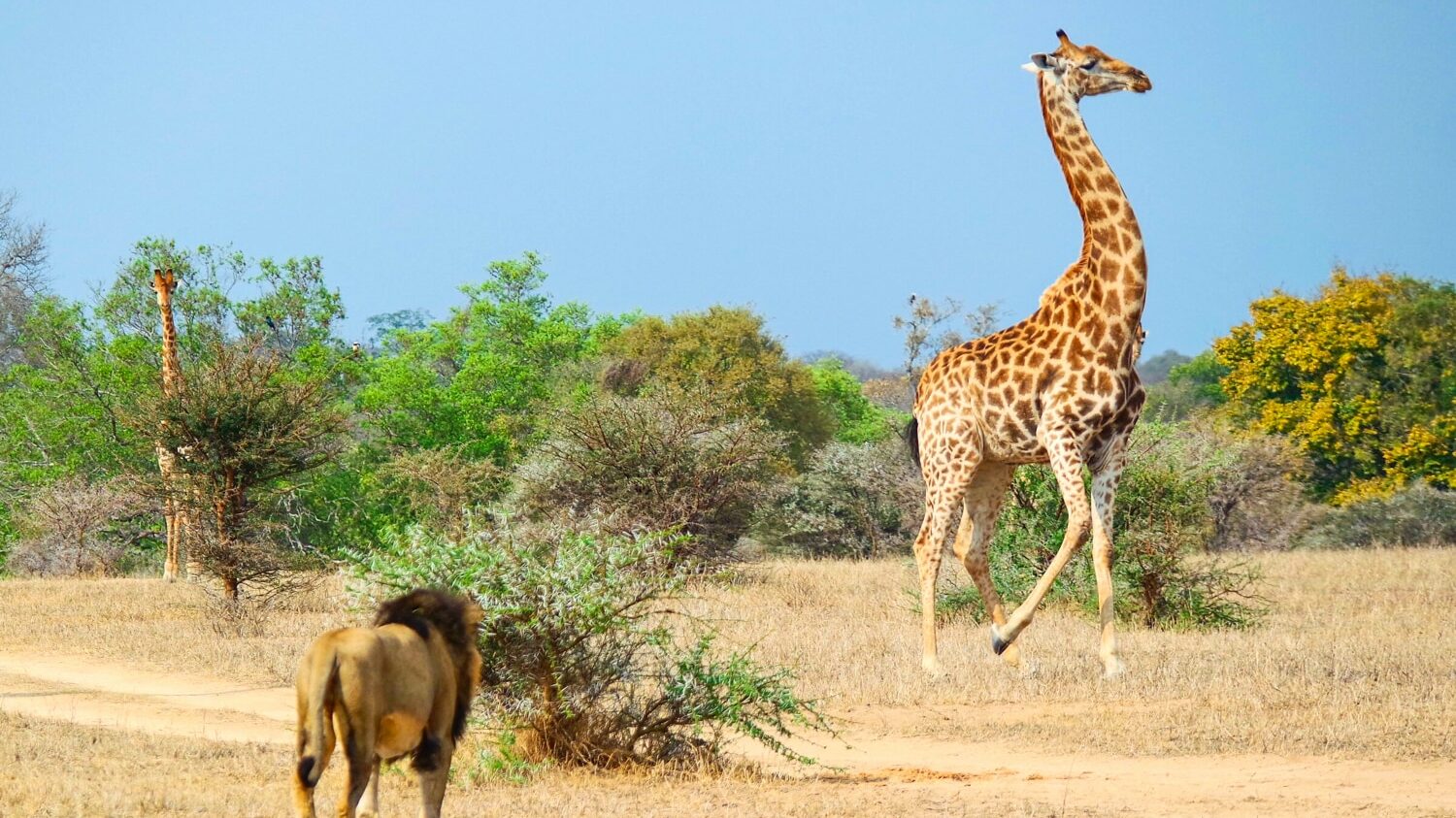
When going on a safari in Africa the goal is to spot animals! Whether you are on a self-drive safari or a game drive with a guide, these top 10 tips could help you spot more cats and wildlife!
Here are our top 10 tips to spot more cats and wildlife
1. Time of Day
Most mammals and birds are generally active during the coolest parts of the day – dawn and dusk. Going out when they are most active increases your chances of seeing them! Although reptiles can be seen during the warmer part of the day basking in the sun. Even though mornings and afternoon are the most active in terms of animal sightings just remember animals can be seen at any point of the day, so always keep an eye out!
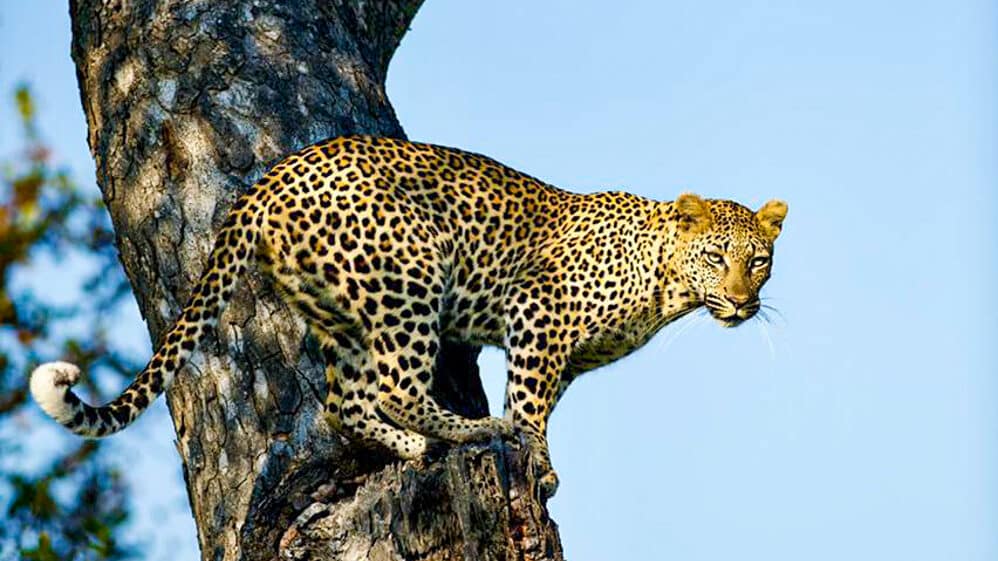
To back up our claim that mammals are more active in the mornings, with decreased activity in the hottest part of the day and reptiles are more active in the middle of the day, take a look at the data collected from our community through real-time sightings.
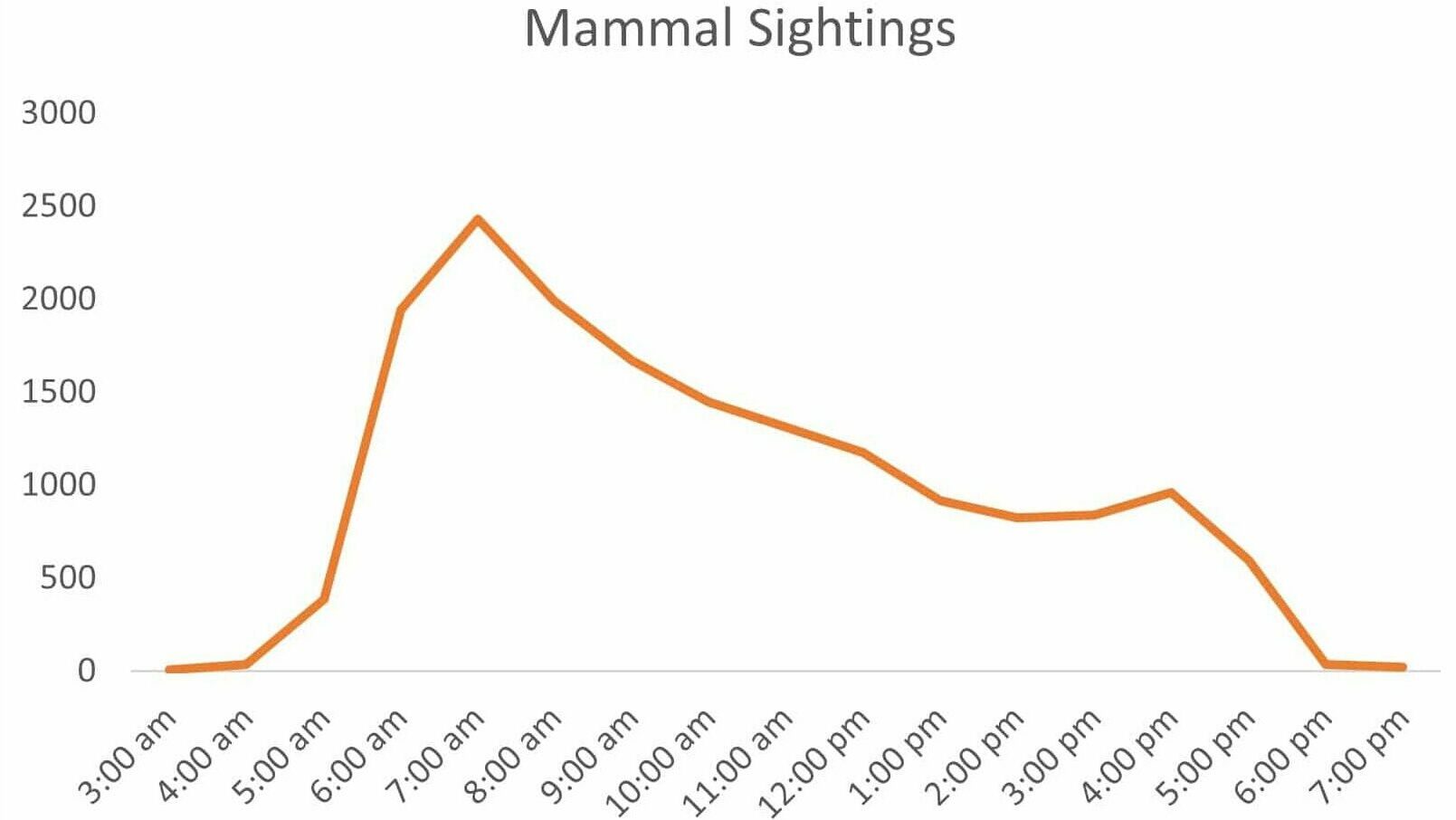
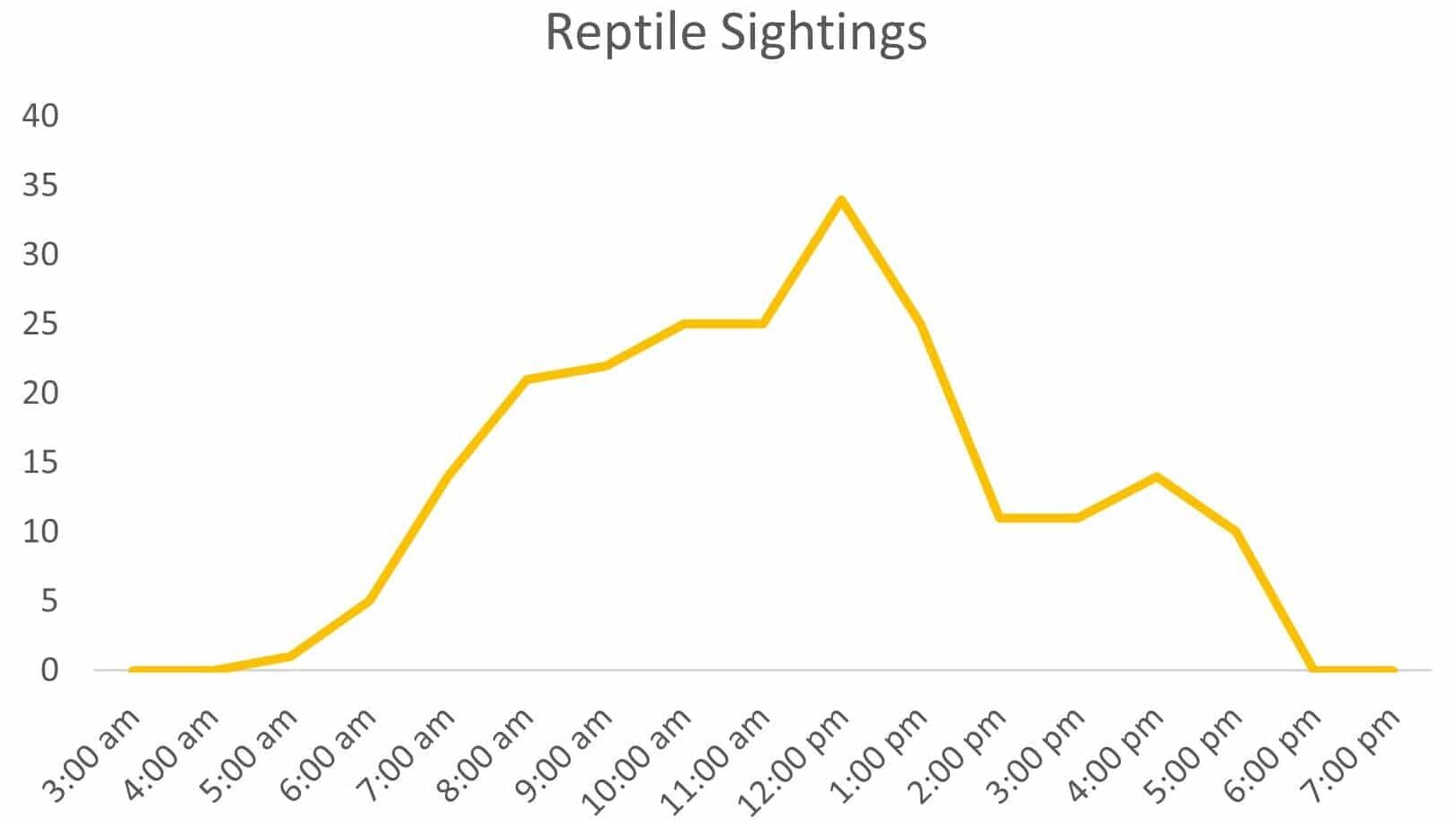
2. Locate Water Holes
Most animals drink daily and at some point, in the day they will visit a water source. Although it requires a little patience sitting and waiting at a waterhole may pay off. Where there is prey there will be predators.
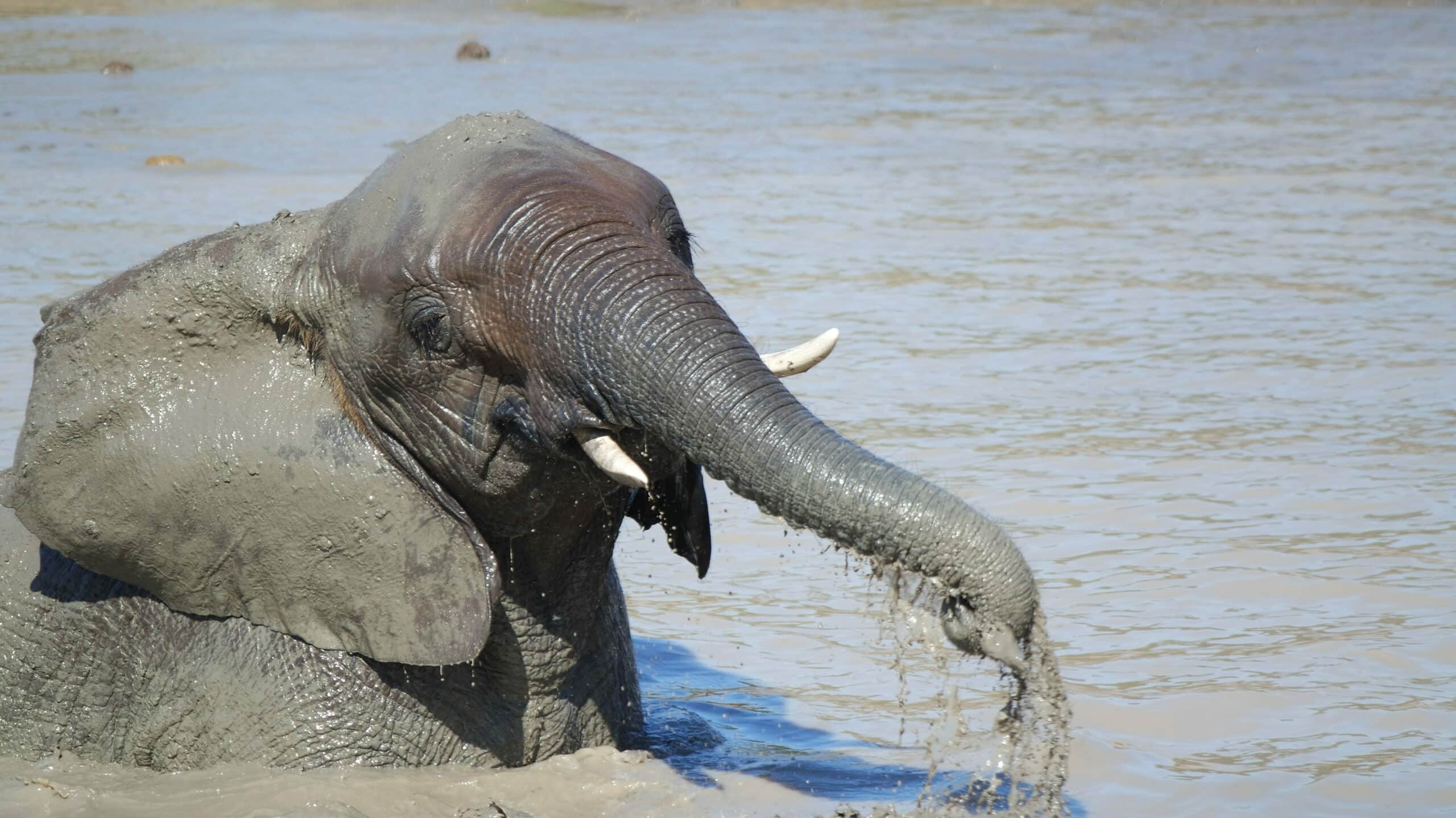
3. Listen for Alarm Calls
- Impalas make a cough-like alarm call when there are predators such as leopards, lions, or cheetahs nearby to communicate danger or a threat to other members of the group and to let the predator know that they have been spotted. Letting the predator know that they have been seen reduces the element of surprise and hunting success. Interestingly impalas do not make alarm calls when wild dogs are nearby, they simply sprint for their lives.
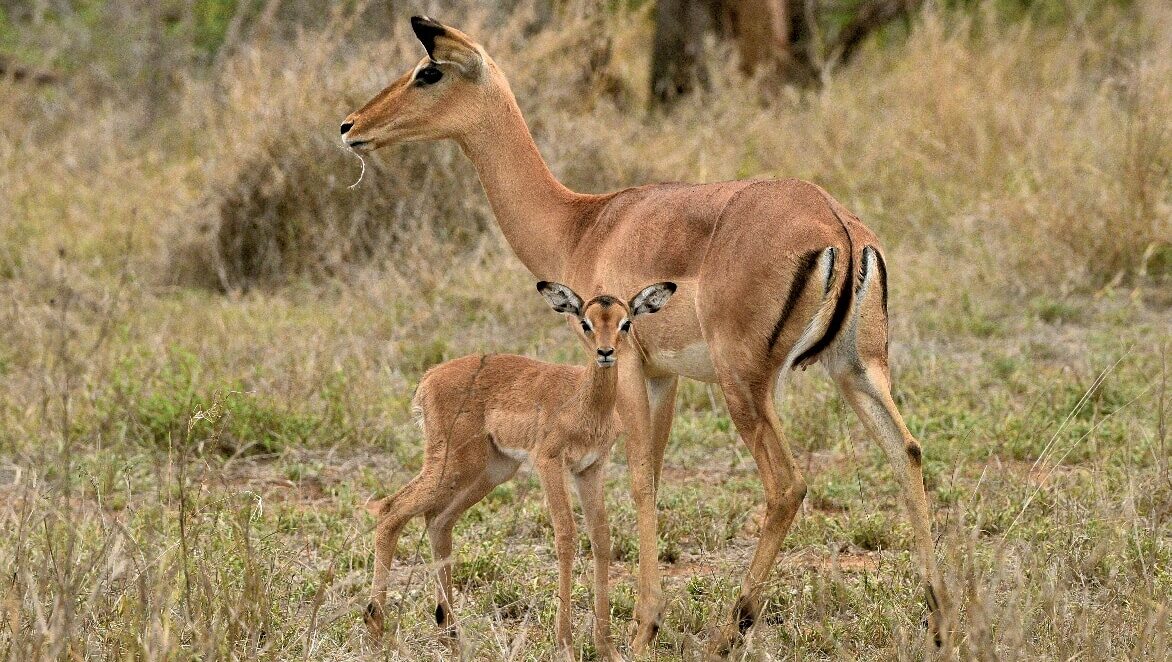
- Kudu, Bushbuck, and Nyala make a barking noise when a predator is nearby. These larger antelope are generally very reliable when making alarm calls however, bushbuck are known to make a barking noise when another male is nearby so don’t be fooled!
- Vervet monkeys have different alarm calls for different threats: when a call is made for an eagle they will dart for cover, when a snake is nearby they will stand on two legs or climb to the top of trees to get away from a leopard.
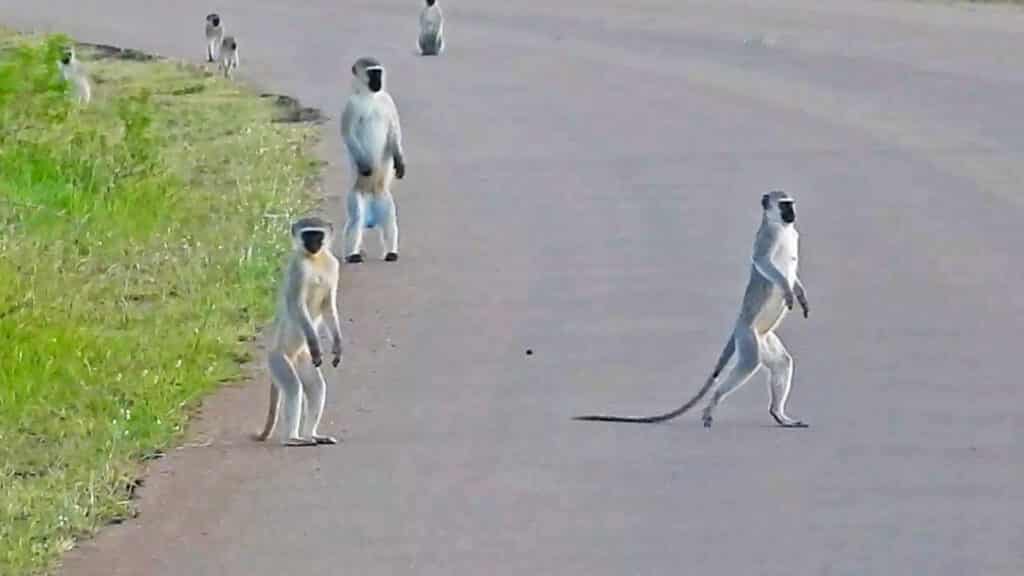
- Oxpeckers can also often indicate big game such as rhinos, giraffes, and buffaloes as they follow these animals around to perch on them, feeding off the ticks that might be on their bodies.
- European Roller birds make a “chhh chhh” sound when a predator is nearby, however, they do of course have the advantage of fleeing from the predator if need be. They become noisier when predators such as snakes and larger birds of prey are nearby, as appose to lions on the ground.
4. Look out for Tracks & Signs
Where there are animals there will be droppings and if you are lucky tracks. When the sand is soft or muddy animals will leave tracks as they move. Follow where the tracks head off into the bush and you may be able to spot a leopard, wild dog, or any other animal that was in the vicinity.

5. Download the Latest Sightings App
Animals often have territories or in the case of leopards, wild dogs, and hyenas they have dens. Do research before you visit the park to see if others have spotted these locations. The Latest Sightings App is the perfect tool to use as visitors to the park “ting” their exact location and you can use park maps or Google maps to find your way there and hopefully spot a predator!
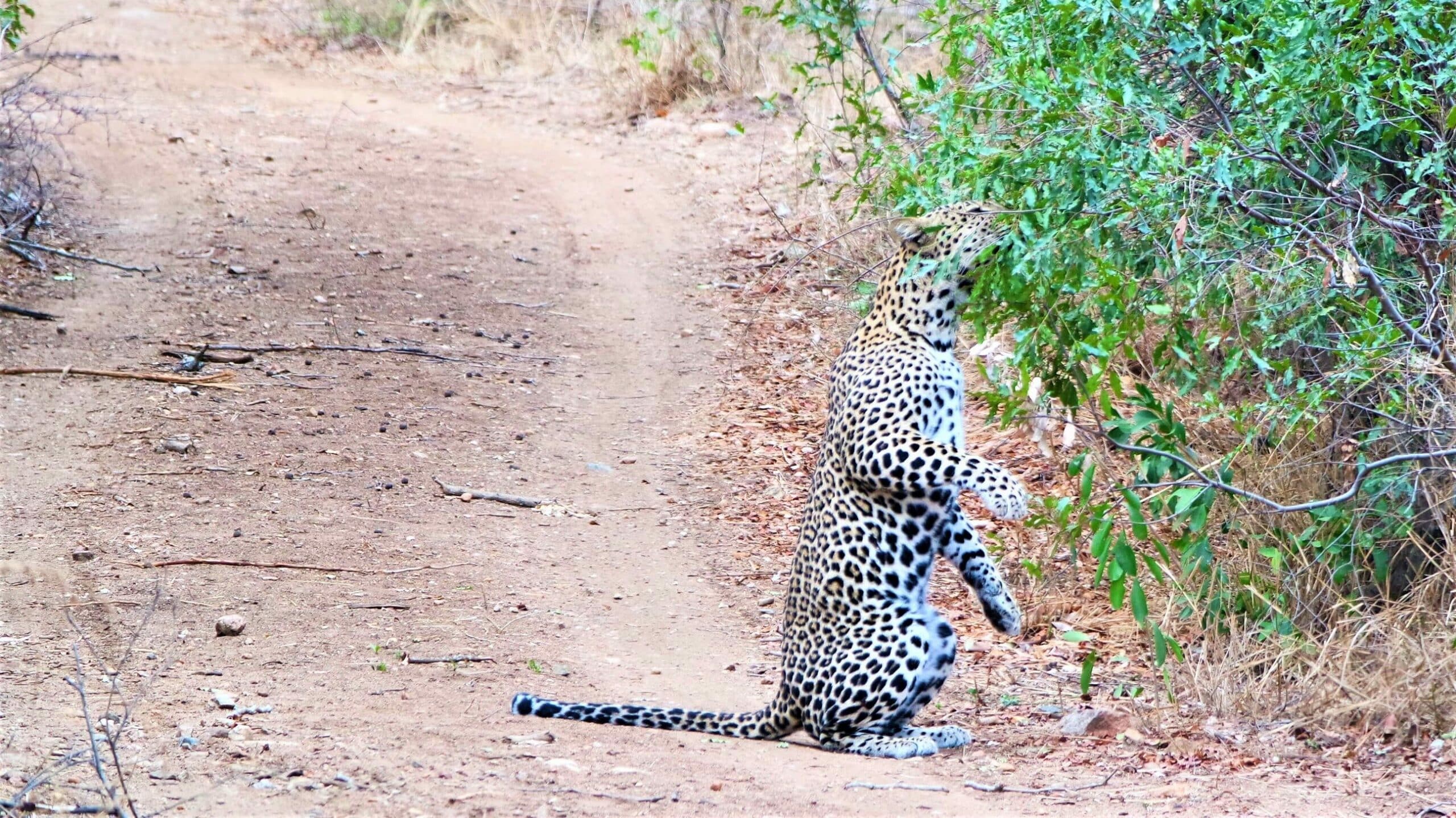
6. Luck and Timing
Sometimes timing and luck is everything, be at the right place at the right time and you may see something incredible! Keep your head up, eyes open, and enjoy nature because you never know what you might see.
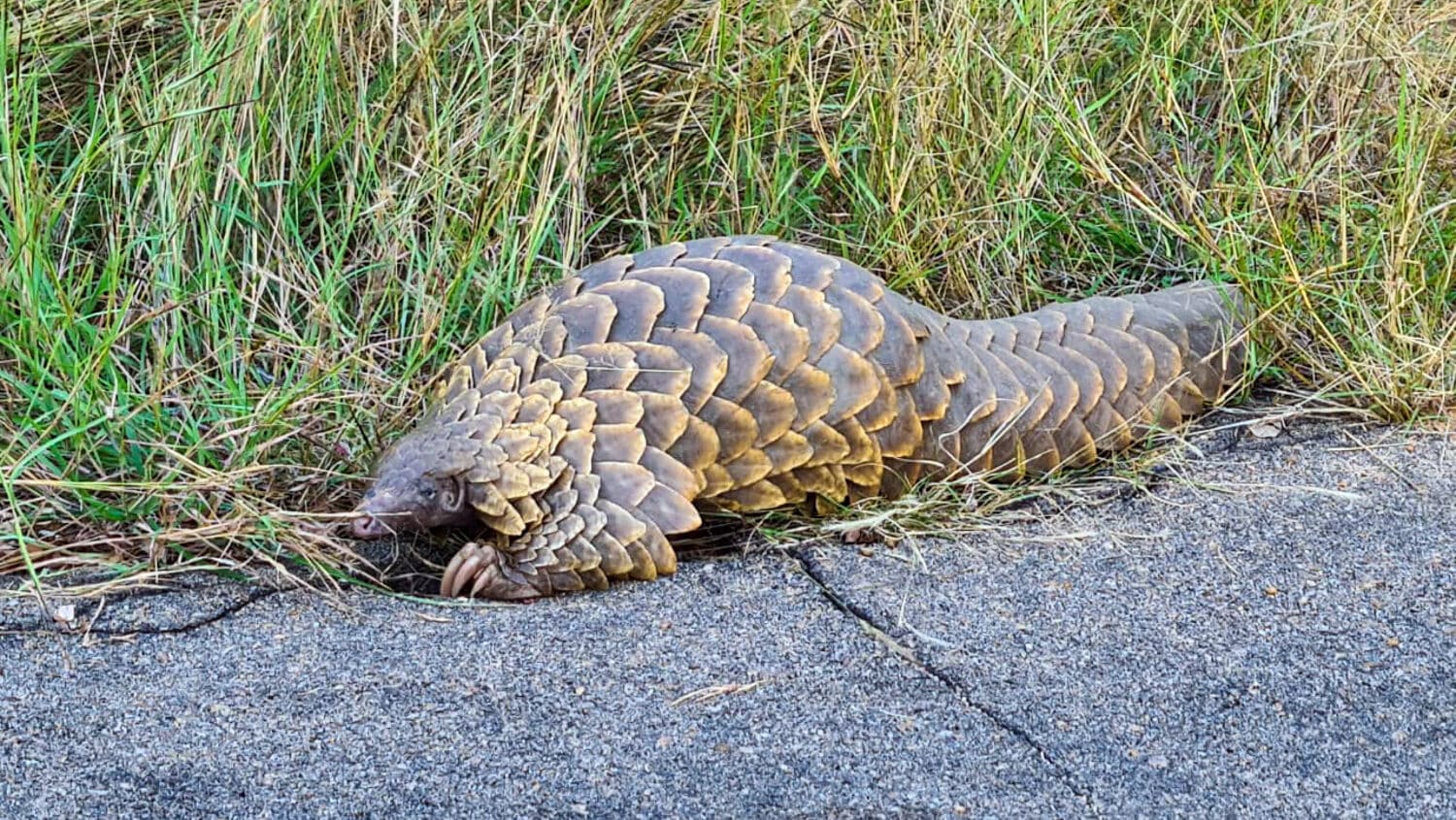
7. Equipment
Make sure you have a good pair of binoculars to scout distant trees, rock koppies, and riverbanks. A good thermal camera is also a plus especially in the mornings and afternoons as it cools down as warm animals stand out against the cold environment.
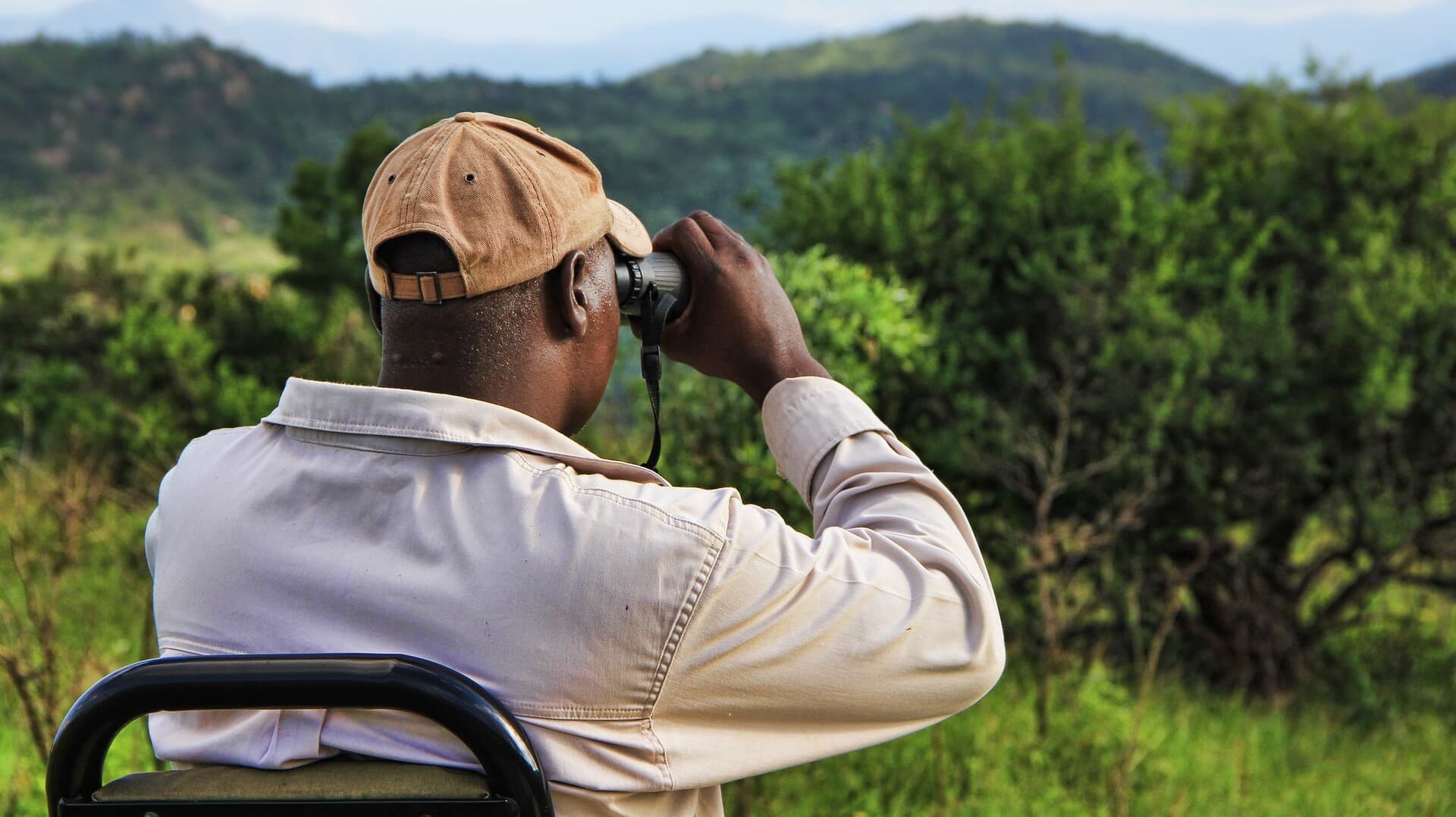
8. Follow the scavengers
Often if a predator has made a kill, vultures, jackals, and hyenas will be in the area – patiently waiting their turn to get some left-overs. Vultures are generally the first indicators as they have impeccable eyesight and can spot a carcass. They will then be perched in trees – generally as huge flocks if the kill is still fresh, with its predator around. Thereafter jackals and hyenas will also move into the area.
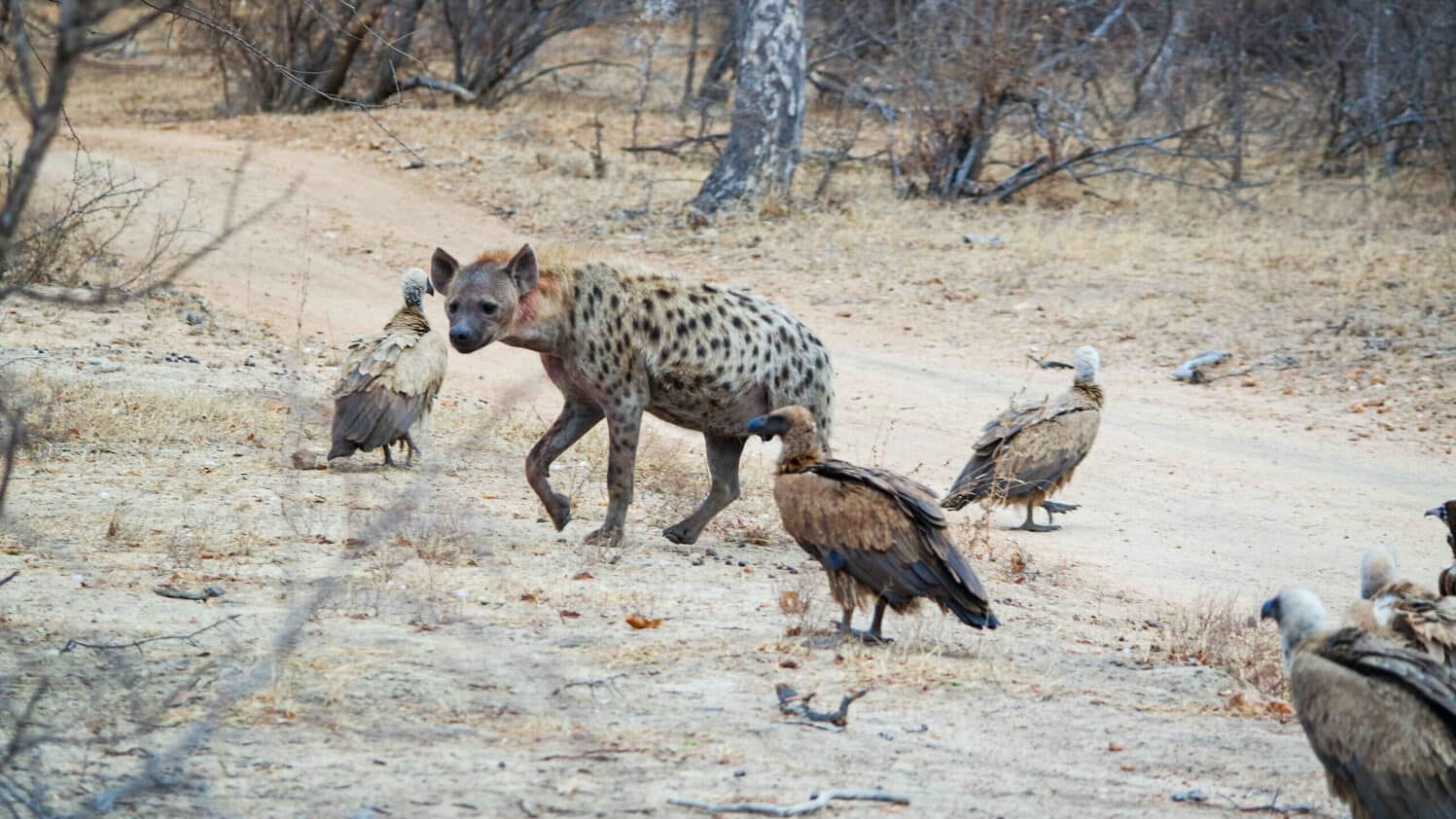
9. No expectations
Often when people go on safari, they expect to see loads all at once. The secret is to expect nothing and get excited about everything! Whether it be insects or birds – if you enjoy and appreciate everything in the bush, you will not feel dissatisfied and deprived when you do not seek only the Big 5. Mother Nature has a very strange sense of humour and from many’s experiences, the testimony is that when you expect nothing, but appreciate everything – Mother Nature will be good to you.
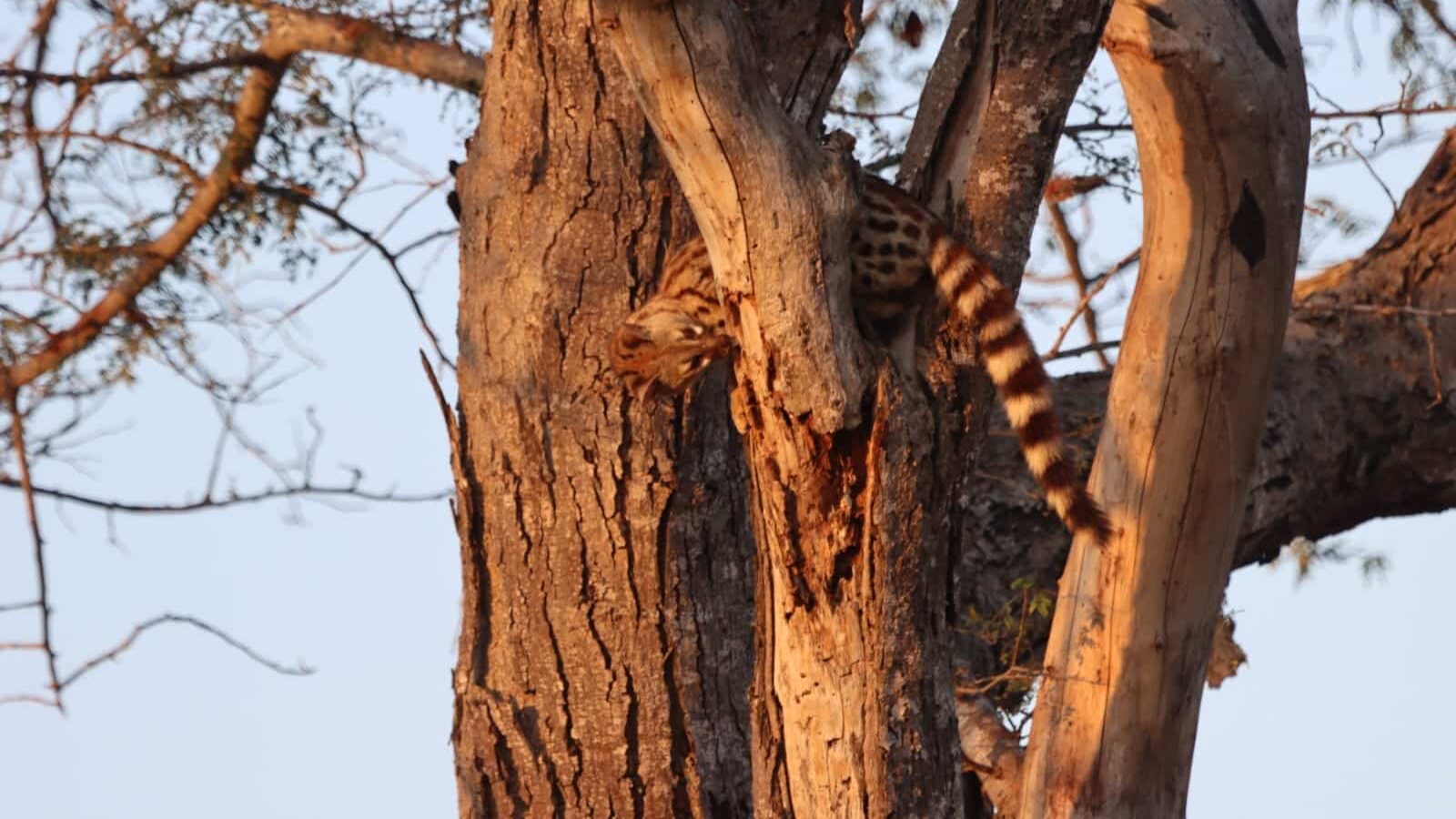
10. Community
Always be friendly to your fellow safari-goers. Chat to people and let them know what you have seen. They might also let you in on a few sightings of theirs.
To join the fun on WhatsApp, follow these link(s), to stay updated and update fellow wildlife enthusiasts:
Hluluwe-iMfolozi Latest Sightings
